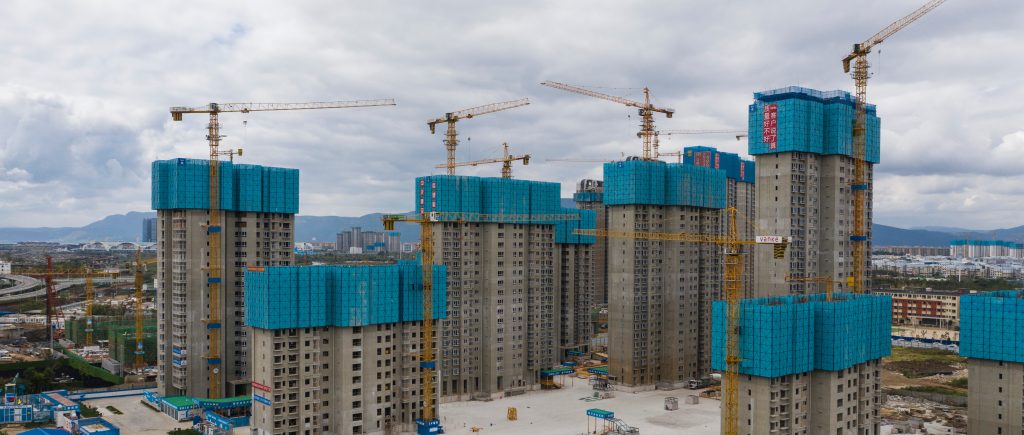Land sales and personal budget cuts are being greatly impacted by the real estate crisis in China, which has reduced retail sales, investment, exports, and industry output.
After three years, the government’s “zero covid” initiatives have not generated the promised roar but rather a whimper. Two-thirds of personal wealth and around a quarter of economic activity are produced by the property business, which is in disarray.
The situation became more apparent after Country Garden disclosed a debt of over $200 billion and risked default and Evergrande Group sought bankruptcy protection in New York.
Small initiatives have been taken by the Beijing government to increase demand, including lowering crucial loan rates and making it simpler for more people to purchase homes. Although consumer confidence is already low, and expenditure is needed to prevent the second-largest economy from collapsing, there is still a lack of faith in the market.
Chinese price declines are more severe than US inflation. President Xi took action in 2020 to rein down the industry’s excessive borrowing, placing pressure on developers who often depended on customers making full upfront payments.
The American ideal of homeownership was sold to residents of China’s smaller cities by real estate behemoths like Evergrande and Country Garden. But in many of these areas, the supply of homes has outpaced the demand, making it difficult for smaller towns to attract immigrants on par with larger ones.
Analysts worry that the government may choose incorrectly how and when to step in to prevent the issue from growing worse if the Chinese economy continues to deteriorate. Beijing’s authorities have opted for indirect assistance for property enterprises as opposed to state-funded bailouts.
In order to boost sales by decreasing down payment requirements and mortgage rates, the government has given banks permission to lend money to real estate developers. Cities that have loosened restrictions on buying a second or third property are also helping people afford homes.
Some contend that these sporadic measures won’t be adequate and that they may change their strategy and turn to using public monies to thwart yet another wave of unsuccessful private developers. For the time being, the government’s main priority should be managing the recession.
With developers failing and the economy deteriorating, the housing slump that the Chinese government is dealing with this month has gotten worse. The government has intervened right away in the real estate market, but the timing couldn’t be worse given how weak the economy is.
One of the top asset managers in China missed paying investors because of a cash flow issue, and the impact of indebted developers and dropping sales spread to the rest of the economy. A model Chinese real estate developer was on the verge of bankruptcy.
Billions of cash have left the nation’s stock markets. For more than three decades, the real estate sector has been a key component of China’s economy, generating millions of employment and accounting for more than 25% of all economic activity. However, it has turned into a burden for the nation following years of excessive borrowing and overbuilding.
Due to the impact of home price decreases on their savings, many of which are invested in real estate, Chinese consumers are spending less. Due to the uncertainty surrounding the crisis’s future, both small and major enterprises are reluctant to invest. Due to their reliance on property sales to developers to fund municipal programmes, local governments are reducing the number of services they provide.
Investors are incensed that trust organisations have lost money as a result of unsafe loans given to real estate enterprises. The administration is to blame for the current financial crisis because authorities have long let developers to take on greater debt in order to support their growth-at-all-costs agenda.
The government acknowledges the impact of the real estate crisis, with failed companies like China Evergrande completing 300,000 of the unbuilt apartments. However, this has led to a decrease in apartment sales and consumers postponing purchases. Investors worry that lawmakers aren’t acting quickly enough to prevent a more severe disaster. The ideal remedy to address the issue is yet to be discovered, and investors demand repayment and explanation from Zhongrong.
In the past three years, more than 50 Chinese developers have either missed or defaulted on their loan payments. Calls for China’s government to step in with a sizable rescue package have been denied as the crisis gets worse. Instead, they have opted for milder solutions like lowering interest rates and loosening mortgage rules.
The new steps to handle the real estate crackdown will take time to take effect, according to the government-run Economic Daily. Investors are concerned that lawmakers are not moving swiftly enough to avert a worse catastrophe.
The Chinese have not yet found the appropriate solution to the problems, and they warn that dwindling real estate sales and defaulting developers face the risk of setting off a domino effect that endangers the stability of the entire economy.
 Noor Trends News, Technical Analysis, Educational Tools and Recommendations
Noor Trends News, Technical Analysis, Educational Tools and Recommendations





